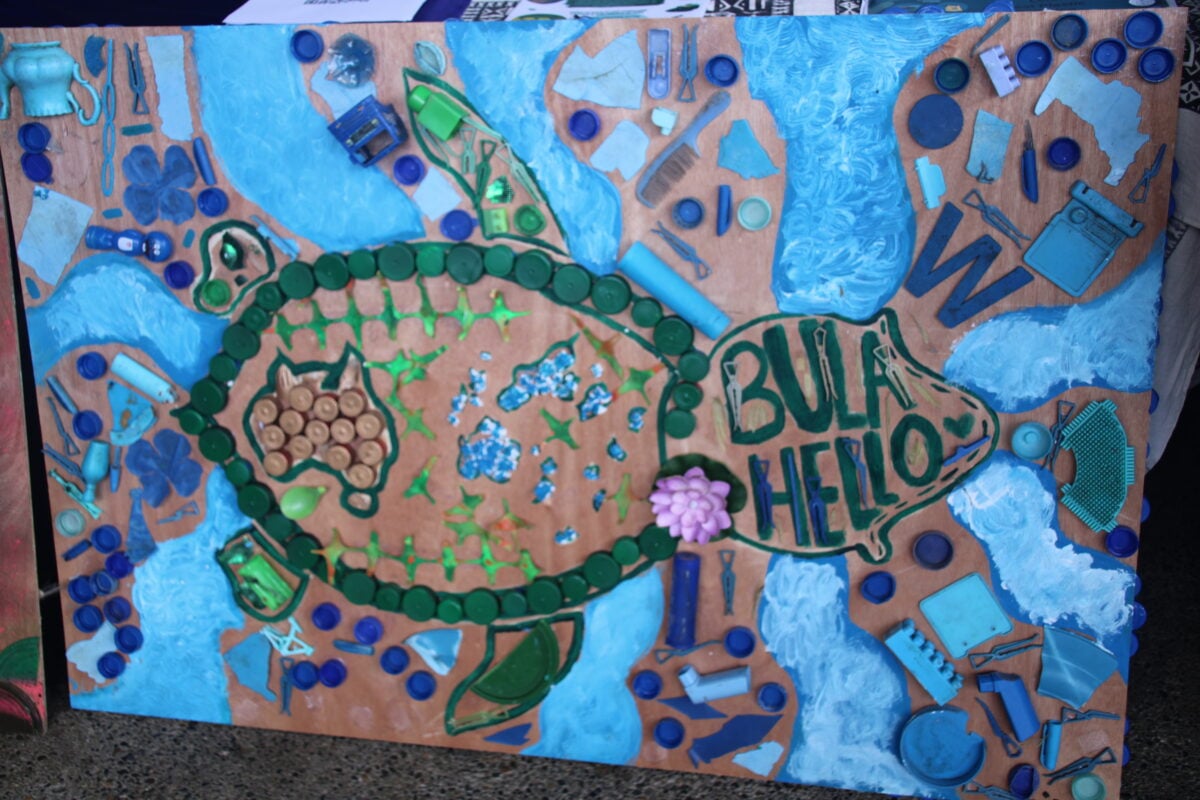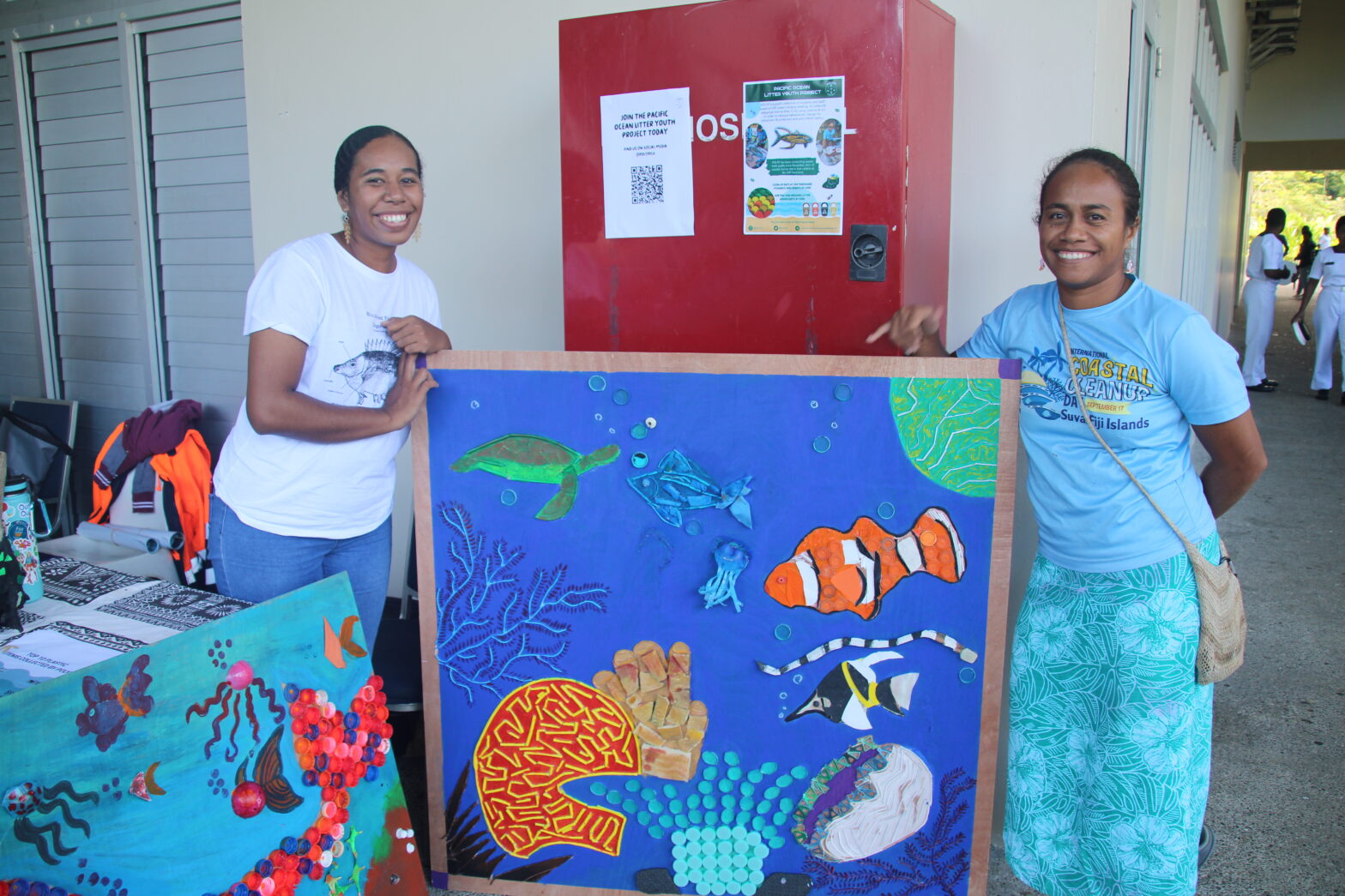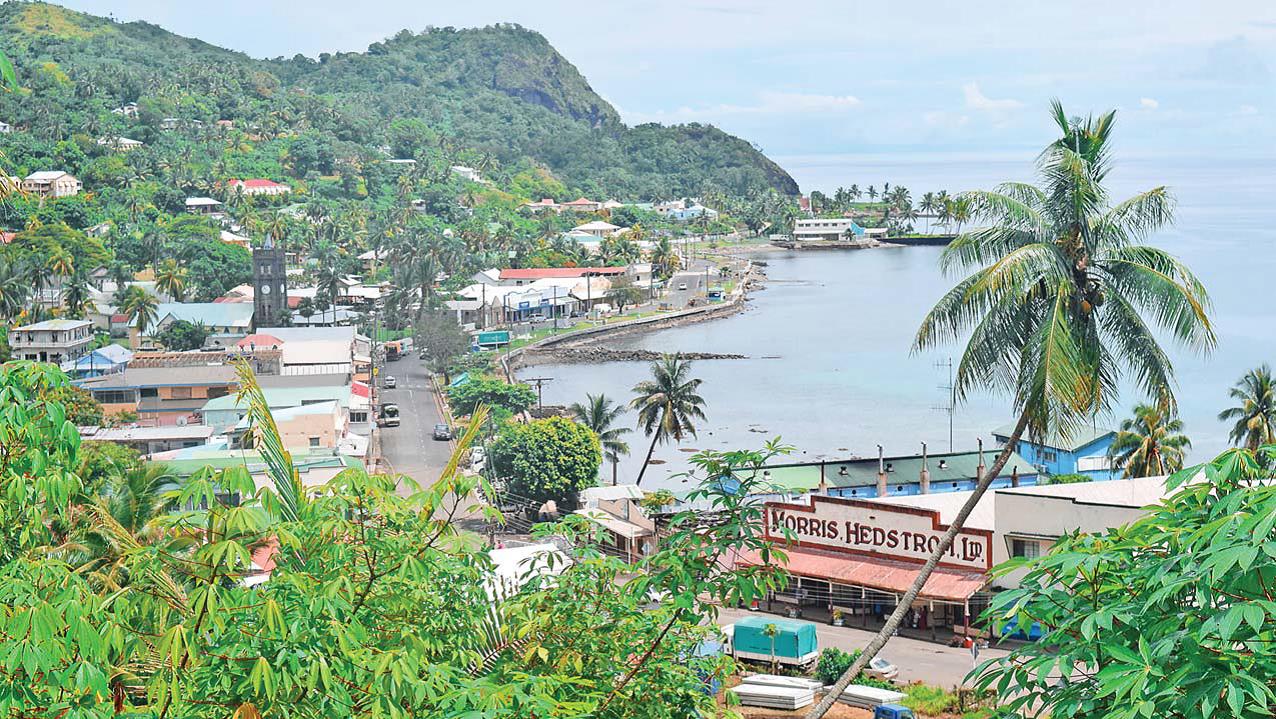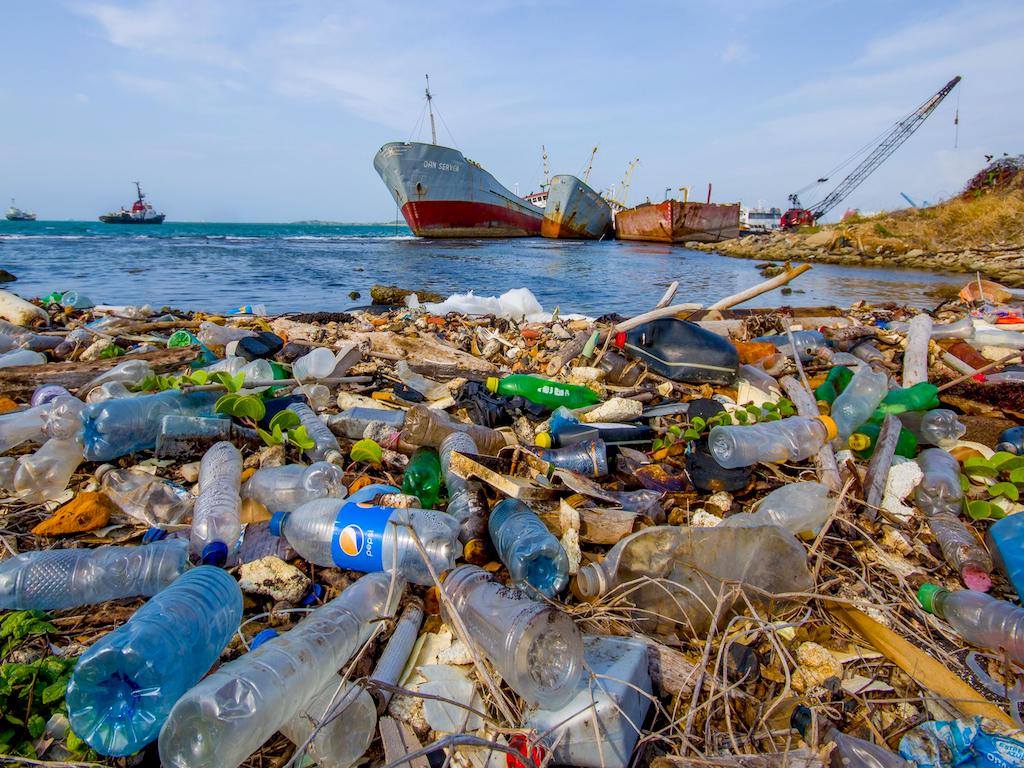On the vivid coastlines of Suva, an unexpected sight often catches the eye: the traces of human activity washed ashore.
Amidst this litter, Suzanne Turaganiwai sees not just debris, but the raw materials for art and the seeds of environmental activism.
For the past three years, Turaganiwai, a marine science graduate turned “artivist,” has dedicated herself to the fight against plastic pollution.
Through her unique blend of scientific knowledge and graphic design skills, she has been transforming marine debris into striking art pieces, all while raising awareness about the urgent need for cleaner oceans.
Turaganiwai’s Instagram page ‘benu_ni_waitui’ is a visual journey through her advocacy efforts, showcasing the various types of litter collected along Suva’s coastline. Each post not only documents the problem but also highlights the beauty that can emerge from waste when viewed through a creative lens.
Her art pieces, often crafted from upcycled items, are both a call to action and a testament to the potential for change.
As the co-founder of the Pacific Ocean Litter Youth Project (POLYP), Turaganiwai, along with her dedicated team, is on a mission to combine the realms of creative arts and science. Their goal is to tackle waste management and plastic pollution in Fiji while empowering the youth to become proactive ocean stewards.
“We have to think about pollution as the end stage,” she said.
“When we look at where our plastics are coming from, they originate from fossil fuels. Pollution and climate change are intrinsically linked by fossil fuels. Everything we pull out from the earth, whether to create everyday items or fuel our transportation, contributes to this issue.
Turaganiwai emphasises that clean-up campaigns, while important, address only one aspect of the problem. A more comprehensive approach is needed, one that includes studying the value chain of plastic production and exploring alternative materials.
“We need to stop focusing solely on the end point, what’s washing up on our shores, and start looking at the entire process, from production to disposal,” she said.
Her interdisciplinary approach seeks to address the root causes of plastic pollution. By engaging in global discussions, such as those surrounding the proposed Global Plastics Treaty, Turaganiwai and her colleagues are advocating for systemic changes.
This holistic view aims to not only manage the pollution already present but to reduce future waste through sustainable practices and materials.
“Yes, clean-up campaigns are good, but we have to look at those producing the plastics. We need to find ways to change that or move away from just cleaning up. It’s about thinking differently and acting proactively,” she stressed.
Turaganiwai’s work exemplifies how art, science, and activism can intersect to create powerful environmental advocacy. Through her efforts, she hopes to inspire a new generation of Fijians and global citizens to view plastic pollution not just as an unsightly nuisance but as a solvable challenge that requires creativity, commitment, and comprehensive action.




